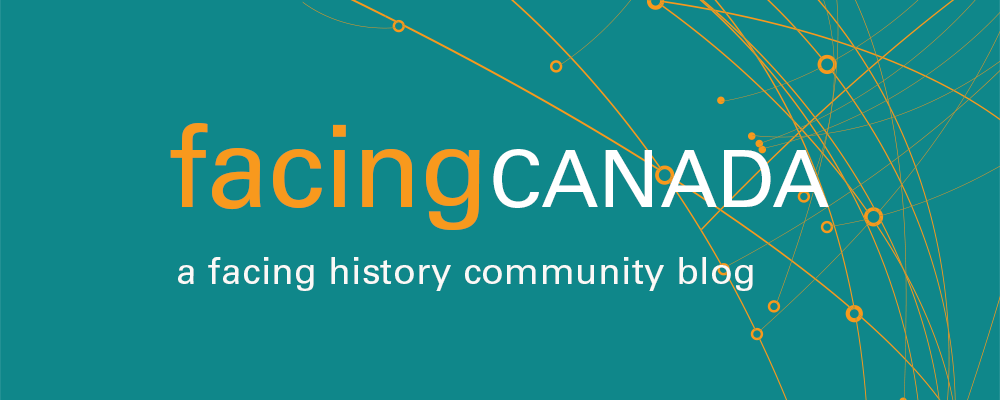We always say that Canada is a young country, but that never hits home till you come to Europe. Here I am in Krakow, the old imperial capital of Poland, whose existence is first mentioned by a Jewish merchant in 965 CE. A city gradually grew on this important trade route near the important salt mines of Bochnia, which would eventually account for 30% of Poland's national income in the 15th and 16th centuries.
We spent Tuesday morning learning about "royal Krakow" and Wednesday learning about the role of its Jews. We learned this in the best way possible: on a guided tour with a superb tour guide who had a degree in Jewish Studies from Jagellonian University. Let me give you my sense of what I learned on these two mornings aided with specific examples. In my second blog I will talk about the nature of Polish Jewish relations seen through the eyes of the incredible meetings we have attended and let you know wht, if any progress I have made towards answering some of the questions I hoped this trip would answer.
In other words this blog is not a travelogue. I comment on what I have seen without worrying about the intricacies of dates. Please find a good guide to Krakow if you want to know more about any of the sites I mention.
Krakow's years of greatness extended over a narrow time frame of barely two centuries. But during this time the city flourished. We saw the huge Wawel Castle where Poland's kings were crowned and buried from the 1380s until the first decade of the seventeenth century. Casimir the Great invited the Jews to Poland around 1350. He gave Jews many privileges for he needed their investment funds to develop salt mines and knew their literacy would help him consolidate a nation with a narrow elite of Nobility developing a Polish identity, and a large population of illiterate Catholic serfs who more loyal to their lords than royal authority. In addition the eastern border was the limit of European Christianity. The Lithuanians were still pagan while the Ukrainians did not acknowledge Catholicism's sway.
Empire building required symbols and ceremonies to construct and deepen loyalty. The Jagellonians, the next dynasty of Poland, rebuilt the Wawel castle as a site for royal coronations.. They understood the role of ceremony in nation building and added a magnificent castle complete with a burial basilica all done by an imported Italian architect in superb Renaissance style. Of course the cathedral was enlarged to underscore the role of the Polish monarch as protector of the Church on the pagan frontier. And the King built the Jagellonian university, second oldest in Europe, to show his love for learning.
Was all this good for the Jews? Generally yes. But while our tour guide painted a Very rosy picture, even a cursory examination of reliable web sites indicates the usual medieval story of false accusations of well poisoning, expulsions, and Jews put to death for crimes they never committed. The university,s first building displaced Jewish residents, though we don't know if that was intentional. But we do know that these students frequently harassed and terrified neighbourhood Jews. And of course there was tremendous jealousy between Jewish and Christian businesses perhaps worsened by the early favorAtism towards the Jews. This proved a convenient excuse to accuse the Jews of trying to burn down the city and their expulsion across the Vistula to Kazimierz which became an area of Jewish settlement for 300 years.
All this sounds decidedly awful but that is far too simple an interpretation. I have learned after deep soul searching and a lot of listening that if I want to honestly deal with the often conflicting accounts I am hearing here, and sift through them, I will need the "discerning hear" Solomon asked for in his famous prayer.
Here are three ways to understand the situation of Krakow's Jews in their golden age which ended when the capital was moved to Warsaw in 1609.
1. The jagellonians protected the Jew, produced a democratic charter highly enlightened in nature, and created alliances with the Ukrainians, Jews, and Lithuanians to create a "multicultural state" with clearly defined rights for these minorities. This is the version presented by our hosts and the new school of Polish history.
2. The Jew in Cracow were far worse off than others but remained because they had nowhere else to go and few rights.
3. The Jews did reasonably well on a comparative basis until 1609.
It is absolutely essential to see which versions, if any, fits the facts. This narrative is the underpinning of everything else.
Number 2 sounds tempting but don't be fooled. The Jews kept returning after every expulsion because the king and local authorities wanted them back. That does NOT mean Jews didn't suffer, but in the Middle Ages, Jews were quite aware of places of relative safety. Even the expulsion of the Jews to Kazimierz proved advantageous as their rights to trade there were actually expanded. The most important reason to reject the idea of powerless Jews is the Existence of the Council of Four Lands, which had unusually wide powers to collect taxes and enforce Jewish law within Jagellonian Poland.
Based on this analysis, option Number 3 is quite true all things considered. But it is option number 1 that is most fascinating. All the people I met today, from tour guides to professors spoke of how multicultural Poland was. I immediately realized that this is key trope in their attempt to compose a new history of Poland, one which makes recovering this multiculturalism a national priority.
I will get back to you dear blog when I finish thinking about this point. I the meantime, let me proceed to my next post and describe what I learned from our speakers.

